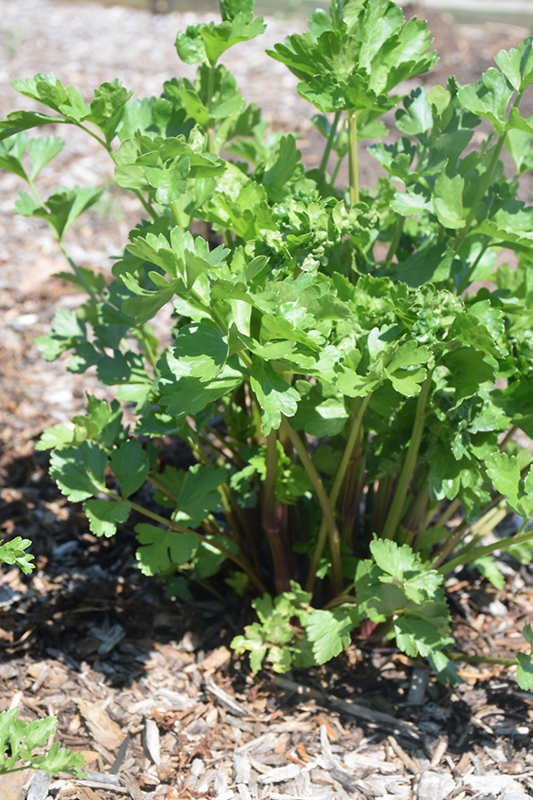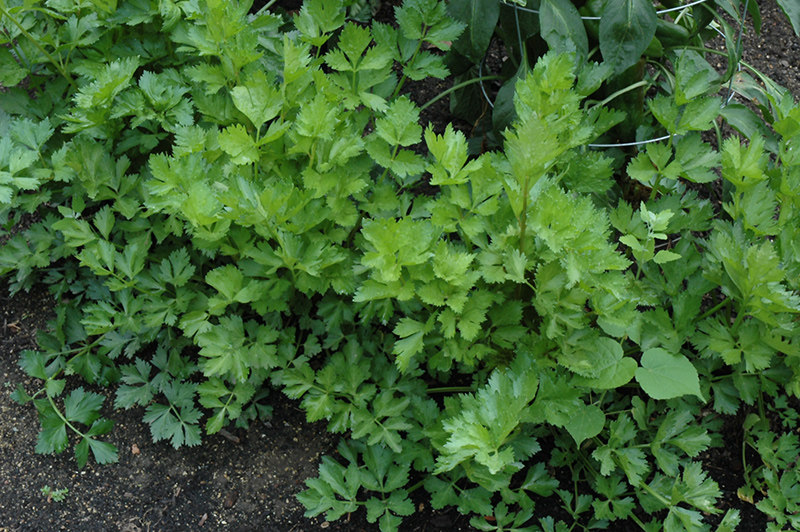Plant Finder
Peppermint Stick Celery
Apium graveolens 'Peppermint Stick'
Height: 24 inches
Spacing: 8 inches
Sunlight:
![]()
Hardiness Zone: (annual)
Brand: Ball
Description:
A shade tolerant, long harvesting crop that produces beautiful green and pink striped stalks; perfect for gardens or containers; stalks have a crisp, distinctive flavor that is ideal for raw eating, soups and stews, while the leaves are perfect for salads
Edible Qualities
Peppermint Stick Celery is an annual vegetable plant that is commonly grown for its edible qualities. The stalks are typically harvested when mature. The stalks have a distinctive taste and a crisp texture.
The stalks are most often used in the following ways:
- Fresh Eating
- Eating When Cooked/Prepared
- Cooking
- Seasoning
- Sauces
Planting & Growing
Peppermint Stick Celery will grow to be about 24 inches tall at maturity, with a spread of 10 inches. When planted in rows, individual plants should be spaced approximately 8 inches apart. This vegetable plant is an annual, which means that it will grow for one season in your garden and then die after producing a crop.
This plant is typically grown in a designated vegetable garden. It should be grown in a location with partial shade or which is shaded from the hot afternoon sun. It prefers to grow in average to moist conditions, and shouldn't be allowed to dry out. It is not particular as to soil pH, but grows best in rich soils. It is quite intolerant of urban pollution, therefore inner city or urban streetside plantings are best avoided. This is a selected variety of a species not originally from North America.
Peppermint Stick Celery is a good choice for the vegetable garden, but it is also well-suited for use in outdoor pots and containers. With its upright habit of growth, it is best suited for use as a 'thriller' in the 'spiller-thriller-filler' container combination; plant it near the center of the pot, surrounded by smaller plants and those that spill over the edges. Note that when growing plants in outdoor containers and baskets, they may require more frequent waterings than they would in the yard or garden.





